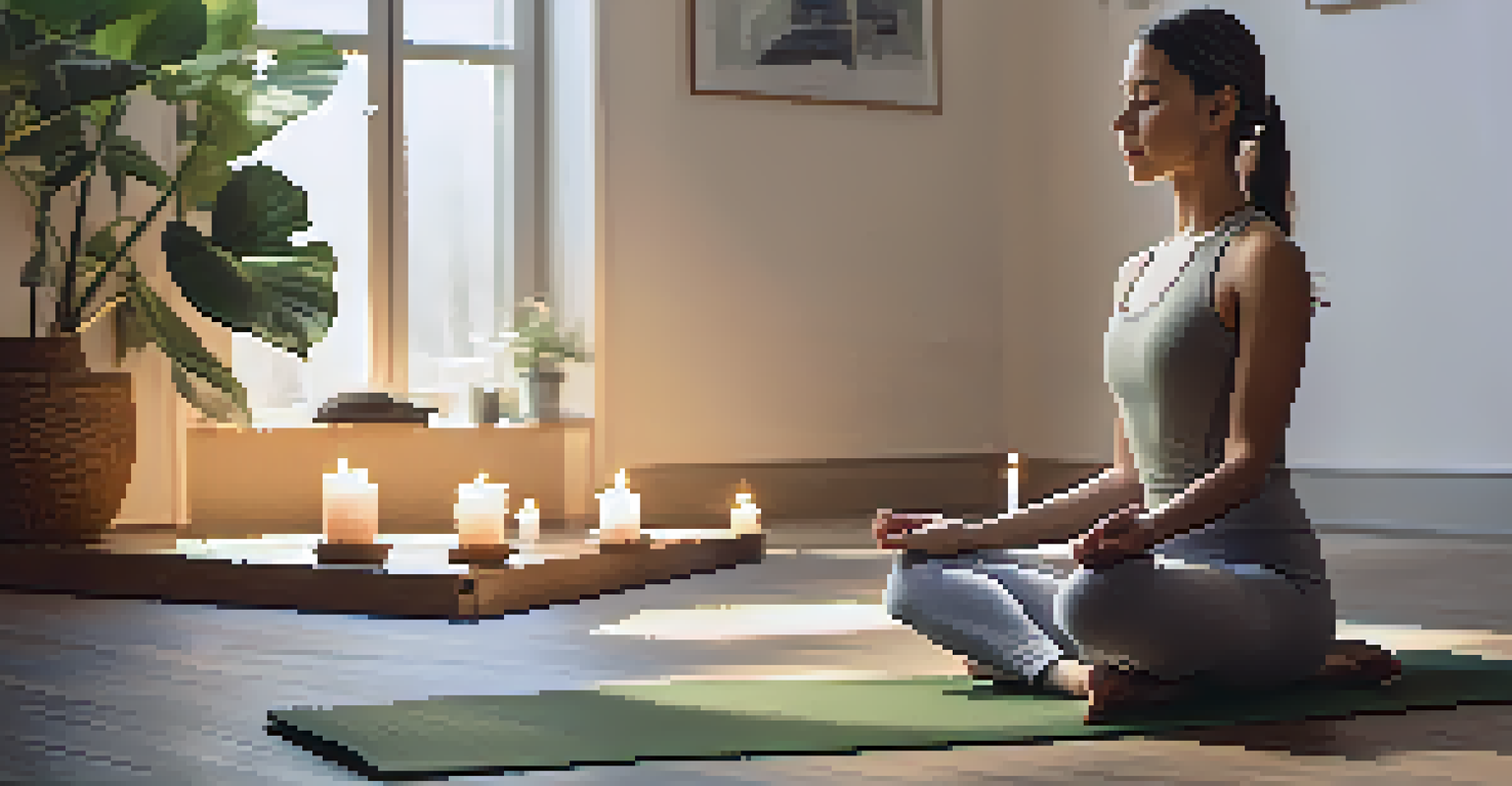Nurturing Patience: Yoga Techniques for Busy Parents

Understanding the Need for Patience in Parenting
Parenting can often feel like a whirlwind of activities, responsibilities, and emotions. With each day bringing new challenges, it’s easy to feel overwhelmed and lose your patience. Recognizing the importance of patience can be the first step toward a more harmonious family life.
Patience is not simply the ability to wait - it's how we behave while we're waiting.
When parents are patient, they create a calm environment that fosters understanding and connection. This not only benefits the parent-child relationship but also sets a positive example for children on how to handle frustration. By nurturing patience, parents can approach parenting with a more open heart and mind.
It’s important to remember that patience is a skill that can be developed, much like any other. Incorporating yoga into your routine can be an effective way to cultivate this vital quality, helping you navigate the challenges of parenting with grace.
How Yoga Supports Emotional Regulation
Yoga is not just about physical flexibility; it’s also a powerful tool for emotional regulation. Through mindful breathing and movement, yoga helps to calm the mind, making it easier to respond rather than react to stressors. This can be particularly beneficial for busy parents who often feel stretched thin.

Engaging in regular yoga practice allows parents to create a space where they can recharge and reconnect with themselves. This self-care is crucial, as it provides the emotional reserves needed to handle parenting challenges with patience. When you feel centered, you're less likely to snap at your children during stressful moments.
Patience Enhances Parenting Harmony
Cultivating patience is essential for creating a calm family environment that fosters understanding and connection.
Incorporating yoga into your daily routine can transform the way you approach parenting. Rather than feeling like a constant juggling act, you can cultivate a sense of balance and calm, leading to more thoughtful interactions with your little ones.
Breathwork: Your Secret Weapon for Patience
Breathwork, or pranayama, is a fundamental aspect of yoga that can significantly enhance your patience. By focusing on your breath, you can ground yourself in the present moment and create space between your thoughts and reactions. This practice is especially useful during chaotic parenting moments.
Yoga is the journey of the self, through the self, to the self.
For instance, when frustration begins to bubble up, taking a few deep breaths can help you regain control. Imagine inhaling positivity and exhaling tension—this simple practice can shift your mindset. With practice, you'll find that breathwork becomes a natural response in stressful situations.
Integrating breathwork into your daily routine can foster a sense of calm that extends beyond your yoga mat. As you become more attuned to your breath, you’ll notice a greater ability to pause before reacting, allowing for more patient interactions with your family.
Simple Yoga Poses to Practice at Home
Incorporating yoga into your daily life doesn’t have to be complicated. There are several simple poses you can practice at home, even with kids around. For instance, Child’s Pose is perfect for moments when you need to reset and find your center.
Another excellent pose is Downward-Facing Dog, which stretches the body and calms the mind. You can do this pose while your children play nearby, making it a great way to involve them in your practice. Taking just a few minutes for these simple poses can help you reconnect with your body and cultivate patience.
Yoga Promotes Emotional Balance
Regular yoga practice helps parents manage stress and approach parenting with a balanced mindset.
Creating a family yoga routine can be a fun way to foster patience together. When you practice as a family, you not only model the importance of self-care but also create lasting memories that encourage connection and understanding.
Mindfulness: The Key to Patience
Mindfulness is all about being present and aware, and it plays a crucial role in developing patience. By practicing mindfulness, parents can become more attuned to their thoughts and feelings, making it easier to respond thoughtfully rather than impulsively. This shift can lead to more peaceful interactions with children.
Incorporating mindfulness into your daily routine can be as simple as taking a moment to observe your surroundings or focusing on your breath. You might even practice mindfulness while doing everyday activities like washing dishes or playing with your kids. This helps to cultivate a sense of presence that enhances your overall well-being.
As you develop mindfulness through yoga and daily practices, you’ll likely find that patience naturally follows. The more you practice being in the moment, the easier it becomes to navigate the ups and downs of parenting with grace.
Creating a Consistent Yoga Practice
Establishing a consistent yoga practice can be challenging, especially for busy parents. However, setting aside just a few minutes each day can yield significant benefits. Start small—perhaps with a 10-minute session in the morning or evening to help set the tone for your day.
Consistency is key; think of it as a vital part of your daily self-care routine. You might even consider involving your children, turning your practice into a family activity. This not only makes it easier to stick to your practice but also teaches your kids the importance of self-care and patience.
Mindfulness Boosts Thoughtful Reactions
Practicing mindfulness allows parents to respond thoughtfully to challenges, enhancing overall family interactions.
Finding ways to weave yoga into your life, such as using online classes or apps, can help you stay committed. Remember, even short sessions can be incredibly effective in nurturing patience, so focus on making your practice enjoyable and adaptable to your lifestyle.
The Ripple Effect of Patience in Parenting
Nurturing patience through yoga can have a ripple effect throughout your family. As parents become more patient, children are likely to mirror that behavior, creating a more harmonious home environment. This positive energy can transform daily interactions, reducing conflict and enhancing connection.
When you approach parenting with patience, you create space for open communication, empathy, and understanding. Children learn how to manage their emotions, which can lead to healthier relationships both within the family and in their social interactions. It’s a win-win situation!

Ultimately, the journey of nurturing patience through yoga is one of growth—not only for parents but for the entire family. By investing in your well-being, you’re setting the stage for a more peaceful and loving home, where everyone can thrive.